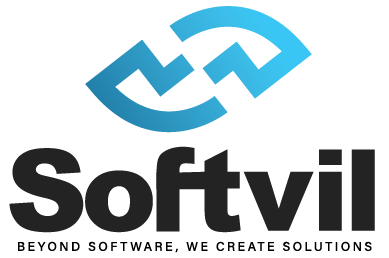As organizations navigate the competitive environment, the ability to concentrate on what they do best becomes a strategic necessity. This introduces the pivotal concept of strategic outsourcing, a practice that empowers businesses to bolster their core competencies by delegating non-core functions to external experts. In the realm of software development outsourcing, for instance, companies can harness the specialized skills of external partners, freeing up internal resources to focus on innovation and differentiation. This introduction sets the stage for an exploration into how strategic outsourcing serves as a transformative tool, allowing businesses to optimize their operations, achieve cost efficiencies, and ultimately position themselves for sustained success in their respective industries.
Specialized Expertise of Outsourcing Partners

In the realm of software development outsourcing, leveraging the specialized expertise of external partners emerges as a strategic imperative. Outsourcing brings a wealth of specialized skills and knowledge to non-core functions, allowing businesses to harness the proficiency of experts who are dedicated to staying abreast of the latest industry trends and technological advancements. External partners often possess a deep understanding of diverse programming languages, frameworks, and methodologies, ensuring that software development projects are executed with precision and efficiency.
Industries such as finance, healthcare, and e-commerce frequently benefit from software development outsourcing. In finance, for instance, outsourcing partners adept at fintech solutions can navigate complex regulatory landscapes and deliver cutting-edge software tailored to the industry’s unique requirements. Healthcare organizations leverage outsourcing to develop secure and compliant health information systems, while e-commerce businesses tap into expertise for scalable and user-friendly platforms. This symbiotic relationship with outsourcing partners not only optimizes software development processes but also allows internal teams to focus on honing their core competencies, driving innovation, and ultimately gaining a competitive edge in their respective markets.
Cost Savings and Resource Allocation

Reducing Internal Resource Allocation
Software development outsourcing presents a compelling strategy for businesses seeking to optimize costs and streamline resource allocation. By entrusting non-core functions to external partners, organizations can significantly reduce the need for in-house resources dedicated to software development tasks. This includes personnel, infrastructure, and ongoing training expenses. The cost-effectiveness of outsourcing allows companies to allocate their financial and human resources more strategically, aligning them with core business activities and strategic initiatives.
Illustrative Examples of Cost Savings
Consider a technology company that opts for software development outsourcing to build a new product. The outsourcing partner, with its specialized skills and efficient processes, completes the project at a lower cost compared to maintaining an in-house development team. The cost savings realized can then be redirected towards critical internal functions such as research and development, marketing, or enhancing customer experiences. This financial flexibility empowers organizations to invest in areas that directly contribute to their core competencies, fostering innovation and sustainable growth. In essence, software development outsourcing not only streamlines costs but also unlocks the potential for redirected resources, enabling businesses to fortify their core competencies and remain agile in a competitive market.
Enhanced Focus on Core Competencies

In the intricate landscape of contemporary business, the correlation between outsourcing non-core functions, particularly in software development outsourcing, and the heightened focus on core competencies is strikingly evident. By entrusting specialized tasks to external partners, organizations unshackle their internal teams from the demands of non-core functions, providing the bandwidth to concentrate on their unique strengths and strategic differentiators.
Strategic Delegation and Core Competencies
Outsourcing enables businesses to strategically delegate software development tasks to external experts, allowing internal teams to pivot towards refining and amplifying their core competencies. For instance, a technology company outsourcing coding and software maintenance can redirect internal talents towards conceptualizing innovative solutions, enhancing user experiences, or exploring new market opportunities. This strategic realignment fosters a culture of innovation and excellence in areas where the organization holds a competitive edge.
Operational Efficiency and Specialization
The collaboration with outsourcing partners in software development not only brings operational efficiency but also taps into the specialization of external experts. This dynamic allows internal teams to immerse themselves in core functions without the distraction of routine software development tasks, resulting in a more agile and strategically focused business model. In essence, software development outsourcing acts as a catalyst for businesses looking to amplify their core competencies, driving innovation, and ultimately positioning themselves as industry leaders in a rapidly evolving technological landscape.
Flexibility and Scalability

Flexibility in Operations
Software development outsourcing offers businesses a dynamic framework, allowing them to adapt and scale operations in response to evolving demands. Outsourcing partners bring a level of flexibility that is often challenging to achieve with an exclusively in-house team. For instance, a company experiencing a surge in software development projects can seamlessly scale its operations by leveraging the additional resources and expertise offered by outsourcing partners. This adaptability ensures that businesses can navigate fluctuating workloads and industry shifts with agility.
Contributions to Overall Business Agility
Scalability through software development outsourcing contributes significantly to enhancing overall business agility. By tapping into external resources during peak periods or project expansions, organizations can maintain optimal efficiency without overburdening their internal teams. This strategic utilization of outsourcing partners aligns with the broader goal of fostering a responsive and agile business model. For example, a tech startup can quickly scale its software development capabilities by partnering with external experts, ensuring timely project deliveries without compromising on quality. In essence, software development outsourcing provides the flexibility to scale operations based on demand, empowering businesses to navigate changing landscapes with agility. This strategic approach not only optimizes resource allocation but also positions organizations to respond effectively to market dynamics, reinforcing their competitiveness in the ever-evolving technology sector.
Risk Mitigation and Improved Efficiency

Outsourcing Partners and Risk Assumption
In the realm of software development outsourcing, the strategic collaboration with external partners involves a nuanced approach to risk management. These outsourcing partners often assume certain risks associated with non-core functions, such as meeting deadlines, adhering to industry regulations, and staying abreast of rapidly evolving technologies. This risk-sharing model liberates internal teams, allowing them to direct their attention to risk management within their core areas of expertise. For instance, a software company engaging an outsourcing partner for quality assurance transfers the responsibility of testing and compliance, enabling the internal team to focus on innovation and product strategy.
Specialized Focus and Operational Efficiency
The specialized focus of outsourcing partners is a key driver of increased efficiency in non-core operations. External experts, dedicated solely to specific functions like software development, hone their skills, adopt industry best practices, and leverage the latest technologies. This specialization often results in heightened operational efficiency, quicker task execution, and a focus on delivering high-quality outcomes. Businesses benefit from this efficiency by achieving faster time-to-market, reduced development cycles, and improved overall project management. In summary, software development outsourcing not only mitigates risks associated with non-core functions but also enhances operational efficiency through the specialized focus of external partners. This strategic collaboration allows internal teams to concentrate on their core areas, fostering innovation and ensuring a competitive edge in the ever-evolving landscape of software development.
Conclusion
In conclusion, the discussion underscores the transformative role of strategic outsourcing, particularly in the context of software development. The exploration of specialized expertise, cost savings, enhanced focus on core competencies, flexibility, risk mitigation, and operational efficiency reveals the multifaceted benefits that outsourcing partners bring to businesses. By entrusting non-core functions to external experts, organizations can unlock resources, streamline operations, and redirect their focus towards refining and amplifying their core competencies. This strategic realignment not only fosters innovation but also positions businesses for sustained success in competitive markets. In the dynamic landscape of software development outsourcing, the ability to harness external proficiency emerges as a powerful strategy for businesses seeking to navigate industry challenges with agility and maintain a strategic edge. Ultimately, strategic outsourcing emerges as a catalyst, empowering businesses to prioritize, fortify, and thrive in their core competencies.

